Episode 4
The Power of Storytelling
S03 - Episode 4
May 17, 2025
45 mins & 29 secs
Speakers
Chris McLaughlin
Soren Peterson
Suzanne Carver
About
In this heartfelt episode of Inspired Insights, Chris and Soren sit down with Authenticity Coach and Author Suzanne Carver to explore how sharing your story—and embracing who you truly are—can open doors to healing and transformation. Together, they unpack what it means to live authentically, the courage it takes to own your narrative, and how our stories can connect, empower, and inspire.
We’re talking: 📖 Why telling your story matters for your healing 🪞 How authenticity transforms connection and courage 💬 The ripple effect of owning your narrative has on the world around you.
This isn’t about oversharing or performing. It’s about being real, honest, and empowered in your journey.
💬 “Your story doesn’t define you—but it can free you.”
You’re not alone. Let’s keep showing up, together. 🌿
🔗 Listen now on Spotify, Apple Podcasts, or wherever you stream.
https://www.youtube.com/@InspiredInsightsPodcast
inspiredinsights@inspiredcg.com
*Please note that this episode contains sensitive behavioral health topics such as suicide and substance use. If you are experiencing a behavioral health crisis, please contact the 988 Suicide & Crisis Lifeline by calling 988 or visiting www.988lifeline.org.
**This podcast is for information and entertainment purposes only and should not be considered health advice. This podcast is not intended to replace professional medical advice.
Transcript
The Inspired Insights podcast is for informational and entertainment purposes only and should not be considered health advice. This podcast is not intended to replace professional medical advice.
Please note that this podcast may contain discussions on sensitive topics such as mental illness, suicide, and substance use. If you are experiencing a behavior health crisis or need support, please contact the 988-SUICIDE-AND-CRISIS-LIFELINE by calling 988 or visiting www.988-LIFELINE.ORG. Welcome back everybody to the Inspired Insights podcast.
Soren:
I’m Soren Pearson. This is Chris McLaughlin. And today we have a lovely guest.
Would you like to introduce yourself?
Suzanne:
Lovely. Thank you.
Chris:
Lovely.
Suzanne:
My name is Suzanne Carver. I am a writer and an authenticity coach. And I coach people how to reclaim their truest selves and cultivate the courage to live as that in this world and really know their own unique brilliance.
Chris:
I have been excited about this episode since we ran into each other recently. And I’m just going to say right up front, Soren, you know this, we have another Swifty at the table. And so there may be some more quotes today, some stories. Just be ready. Be prepared.
Soren:
I need to put my guards up now.
Chris:
Yeah.
Soren:
I just need to. I’m preparing. I’m preparing.
Chris:
It begins. And it begins. It begins.
Soren, first of all, how’s your week been?
Soren:
My week has been overall good. We’re looking in a positive direction, but it’s been a lot.
Yeah.
Chris:
Good. You know, I keep thinking, and Derek keeps saying, Soren’s done school, like Soren’s going to be leaving soon. And every month that passes, like it’s essentially spring-ish.
Yeah. You’ve got a couple more months of high school career left.
Soren:
Not even because all of my classes right now, I’m taking five AP classes. And after tests are done, it’s over. Early May.
Yeah. Early May. And I just will be sitting in classes that are essentially study halls.
Chris:
I did not realize that. For a month. Wow.
It’s right around the corner. Yeah. We’ll unpack that at a later time.
I have a lot of thoughts on it, too. But Inspired Insight for the week, kick us off.
Soren:
My Inspired Insight is about relationships. I think especially, and this is for all my teenagers out there, but it applies to adults as well, oftentimes we lose ourselves in relationships. We feel like we need to constantly be around the person, whether it be our significant other or best friend, and rely on them for everything.
Right? Like I have friends who have dealt with significant others that are incapable of existing without interacting with them constantly. And I think it’s important to recognize when relationships are consuming us.
And that’s part of sort of like defining our identity as individuals.
Chris:
Yeah.
Soren:
Yeah. So yeah, my Inspired Insight is sometimes I know that it’s amazing to hang out with others and social connections are fantastic and we should be spending time with others, but know when enough is enough and know when your identity is starting to be dissolved into an amalgam with another person. Because that gets to a point where it’s really unhealthy.
Suzanne:
Yeah. It’s like a slope, too. Yes.
Very, very slow. It’s happening. Yes.
It’s happening.
Soren:
Yeah. Until you’re in the gaping chasm.
Chris:
Yeah. Yeah. Yeah.
That’s great insight. Yeah. I’ve been thinking based on some things going on in my world right now, you know, we often use that expression like just rip the band-aid off.
And I pride myself on being a much more planful, methodical, organized, I don’t like a ton of surprises. I don’t like a ton of chaos. And this has been a week of some forced chaos in my world that I, the beginning of the week, held on to a lot of resentment and anger about like, how dare you do this to me or to us in a professional capacity.
And with every passing day this week, I’ve been more like grateful, thinking of other themes Soren and I talk about all the time, like gratitude. I have been finding gratitude in having that band-aid ripped for me and watching as the dust of the week has settled, realizing they did me a favor. Like by ripping the band-aid off on something that I was planning to pull the corners around for another month and a half or so, by having the band-aid ripped off, liberation and freedom and breathing lighter already.
And so, yeah, I guess my insight is really thinking about our perspective can change, similar to other things you and I talk about all the time. That’s something that initially felt done to me, now feels done for me.
How about that?
Yeah. How about you, Susie? And I love it to hear our guests’ inspired insights.
Suzanne:
Well, it’s so interesting that you said that because our topic today, if we talk about story that is, you’re changing the story and we change the story. It’s our power. It’s our values.
And I think that’s my favorite thing about story. My inspired insight is about being limitless. Just that idea that I am truly only limited by what I’m willing to believe about myself.
And so the more I’m willing to believe is possible for me, either for me to be or to have or to express, that’s the container that I’m in. Those walls can always be expanded. And so in that way, I and all of us are essentially limitless.
That’s so empowering.
Soren:
I think that is a really beautiful idea. And as I’ve said in previous episodes, we quite literally define the world around us through our perspective. There is no means through which we filter reality other than our own perspective.
And by having unlimited capabilities to change that, we have unlimited capabilities to change the world around us.
Chris:
And how powerful is that?
Suzanne:
And in my work, I use story to do exactly that.
Chris:
Let’s dig into what you do, because I don’t think I’d heard you introduce yourself as an authenticity coach before. So tell us everything.
Suzanne
You wish.
Chris:
I love it.
Suzanne
It’s something I’ve been doing for a long time in my regular life, and I’ve decided to actually do it as a job.
Chris:
Yeah.
Suzanne:
Get into a business and work for myself to own the gifts that I was given. And sometimes that’s really scary. Sometimes I’m like, do I really have the right to be doing this, to be calling myself this?
And I think, how dare I? And I think, well, how dare I not do that? Why would I waste my gifts for this reason?
I have these gifts. I don’t have your gifts, and I don’t have your gifts, and vice versa, maybe. And so I’m not going to squander them.
So I work predominantly with women, but not only with women, to help them express and own their truest versions of themselves. And I do it in lots of different ways. One-on-one coaching, I teach workshops, I have all kinds of…
I’m launching a three-month coaching program right now for consistency, so we can work on this together. And so much of authenticity is about taking down the walls that have formed around us. We put them there, societies put them there, familial, it could be anything.
But usually we have some part, at least some participation in helping construct them. And then it becomes so embedded in us, oh, I’m using my hands, I’m not supposed to do
Chris:
Oh, talk away, yeah.
Suzanne:
That we feel like they are, in fact, permanent, real things, and they are constructs.
And so I use story both as a writer, I am a blogger and a fiction writer. And then I also teach how to change your story through a workshop to teach a tool called scripting, where we actually take an active role in the narrative that we have of ourselves and our lives. And, you know, the interesting part about it is that people are like, I’m really just lying to myself.
Like, can I really write that into being? And the truth is, you absolutely can. And the resistance is really, really normal.
So I teach people how to work within that, so that they can expand their own containers and change their stories and change how they are showing up in the world, which changes your entire life.
Soren:
100%. 100%. I find that so interesting because I feel like in Western society, we have this idea of concrete identity and we create a brand about ourselves and we create ideas around ourselves that then manifest in concrete things.
And like, I see this in gender roles, which I hate. I’m an active proponent for the deconstruction of gender roles as a societal construct. But we have a bunch of rigid ideas around our behaviors.
And then we’ll say things about ourselves. And then we’ll feel like those things that we’ve said about ourselves are rules that we’ve made for ourselves. Right.
Suzanne:
Or that someone’s made for us and we have to adhere.
Soren:
Precisely. Precisely.
And I think part of defining ourselves is recognizing how fluid we are. Right. Right.
Like, people want concrete things to identify with. And I think when you identify with something concrete, you’re obscuring yourself. Because we as individuals are not concrete.
We’re fluid. And we need to view ourselves as much more amorphous and abstract in order to truly hit at the meat of who we are and who we want to be and who we will be. And that doesn’t necessarily have to be a concept or an idea.
It can just be a feeling too. Like, it’s very abstract and fluid. And as you said, constantly changing and we can define it.
Soren:
Yeah.
Suzanne:
Yeah.
It’s creating our lives by these constructs. And I just, I don’t think that people think of them as optional or changeable. And so to insert that moment over and over again of power, of empowerment, of choice, it’s so life-changing.
Chris:
Yeah. In a lot of my work, especially in the diversity, equity, inclusion, I do a lot of consulting in that. And we talk all the time about minority stress and internalized oppression, whether that’s internalized homophobia, internalized transphobia, internalized racism, all of it.
Suzanne:
White supremacy.
Chris:
And as you’re talking, Suzanne, I’m thinking of that process by which we as humans unfortunately go through when we adopt the narrative that’s been told about us or who we are or who we’re supposed to be. And so much of your work, really, in the lens that I’m approaching it through, is about knocking down those walls, toning down that inner saboteur.
We talk about RuPaul here a lot, too. That inner saboteur’s voice that’s telling you, you’re not good enough. You’re not smart enough.
You’re not attractive enough. You’re not funny enough. People aren’t going to like you.
Impostor syndrome is that voice. Yeah.
Suzanne:
And I wrestle with that every…
Chris:
Yeah. And I think we all do. And for me, it’s not about knocking the voice off our shoulder.
It’s about learning control on the volume.
Suzanne:
And for me, strengthening the other voice.
Chris:
Turning up the other. Yeah.
Suzanne:
The truth is we are always creating our lives. We’re either creating it through fear and limitation or we can choose to pivot and create it through expansiveness, authenticity, limitlessness, possibility. It’s just a choice I don’t think most people feel like they have.
Chris:
Yeah.
Suzanne
So some of it’s always everything I teach starts with awareness. You just have to become aware of what the messaging is, what the voice is, what the programming is. You know, socialization is not a bad thing.
It teaches us to not burp at dinner and be nice to people, not shove people over and things like that. There are places for it, but there’s so much that’s programmed in that we are… It’s so subconscious.
Chris:
Yeah.
Suzanne:
Yeah. We just think it’s the truth.
Chris:
Yeah.
Suzanne:
Yeah. It’s not.
Chris:
Well, I think about your piece around the gender role piece, Soren, that I was doing a training this week talking about developmental stages of how we acquire the understanding of gender. And the research is super clear. Kids as young as two are starting to move their understanding of gender away from biology and more towards roles.
So this is a girl of color. This is a boy color. And by the time a kid turns three-ish, three and a half-ish, they’ve already started to identify their gender beyond their biology as two.
Soren:
I think that dynamic between cultural abstractions, like the conceptual boxes that we draw around things, and the material reality of situations is a divide that we see a lot, especially in the political sphere. You guys say that you’re going to mention Taylor Swift a lot. I’ll talk about my Taylor Swift, Karl Marx.
Chris:
I’ll do the K-hard hands for Karl.
Soren:
And he talks a lot about, or rather uses, this idea of, or rather this tool of dialectical analysis. And it is analyzing situations through interactions rather than groupings.
It’s not about categorization. It’s about an understanding of literal material dynamics and how they interact with each other in a very organic manner. And I think that’s kind of the divide between the left and the right.
The left is focused on material realities and dynamics that result in concrete things. Whereas the right, I think, is focused a lot more on the maintenance of ideas and the maintenance of arbitrary cultural principles. And I think it’s really important to try to abstract the cultural principles around yourself and examine what they’re actually doing and whether they’re grounded in reality.
Chris:
And who is it serving?
Soren:
Yeah, precisely.
Chris:
Is it bringing me joy and freedom and liberation? Or is it continuing to oppress me and keep me down?
Suzanne:
Which I, by the way, think that joy and freedom and liberation are the most subversive things we could ever be. They’re our deepest activism.
Chris:
Yeah. Right. By choosing joy.
Suzanne:
Than a, you know, a petition.
Chris:
100%.
Suzanne:
It’s the energy with which we embody and put into the world and art. Really matters.
Chris:
And I have to believe, or I guess I’m imagining that in your work, Suzanne, part of what you’re doing is challenging your clients to reconnect with some of that resistance. Reconnecting with what maybe used to spark.
Suzanne:
Yes, because I would be, you’d be hard pressed to find someone who hasn’t found some part of themselves that they needed to tuck away for safety. For either because it was rejected, or it interfered with belonging, or it was criticized or made fun of, or just unwanted. I would say we probably, most of us, have parts to reclaim.
Takes a lot to coax those out of hiding. I think the first step is to experience them within yourself and be like, oh yeah, there’s that.
Chris:
Yeah, I remember that.
Suzanne:
And then to take it on the road, so to speak. That’s where it’s most powerful, is when you embody it to the point where you are living it unapologetically, and then I think all the circumstances of your life then shift to bring what matches that, you. That’s been my absolute direct experience.
Some of the things I long, long wished for in my life and wanted to create, I don’t think there was enough of me online to call them. Never. They’re all showing up.
And I’m like, wow.
Chris:
Well, and something else that Sorin and I often bring up, because I think it’s part of the human experience and it’s also something we don’t, unfortunately, we don’t talk as openly about, is the role that something like trauma or oppression, which is a form of trauma, does to us to keep those pieces down. And when sometimes it takes other people giving us permission first before we write that permission slip to ourself. And I think about, as a clinical social worker, these are conversations I have with people all the time.
What’s fascinating, Susanne, about what you do is you take the conversation one step further and you document it in a narrative, in a story.
Suzanne:
Well, for me, trauma is one of my favorite things to talk about, which I know is kind of probably weird to most people, but it has absolutely defined entire parts of my life in its occurrence, in its healing, in its recovery, and then in actually integration. And so there was so much pain for so long. I saw trauma, specifically my trauma, as…
It’s always a little weird for me to call it mine, but I don’t know another word for it. I’ve tried on a few, and I don’t mean the behaviors were mine, but the wounds were. So I actually find it empowering to say that.
My trauma was, to me, a massive liability. It was the thing that… It wasn’t like a secret.
It just was the thing that I was dragging around with me that kept interfering with everything I wanted. It interfered with my relationships, interfered with my self-concept, with my body, with my dreams. Like anything and everything, it touched everything.
And I, at some point, decided that I was going to figure out how to use its best parts and change the story about its impact, its role in my life. And I was going to own it. And so I have…
That’s where I began, was to start rewriting that story as understanding that, while I would never wish that upon anyone, and I would certainly not wish it upon myself, I would not want to go through it again, and I don’t think it’s an ideal way to start your life, I wouldn’t actually change that either.
Soren:
A hundred percent.
Suzanne:
Because it’s made me who I am, and it’s given me gifts to help other people reclaim parts.
And in my opinion, trauma is completely not… I can’t think of the word. You cannot have authenticity and trauma exist in the same space because trauma requires you to compartmentalize everything.
Safety is the only thing that matters. And so until that can start to decrease its energy and presence in your everyday life, you can’t possibly bring your authentic self forward. Changing the story around the trauma and its impact and its power, like taking its power and turning it on for me, has been the thing that has actually allowed me to then begin to call parts of myself home.
And I don’t mean the calm parts, new parts, I mean emerge these parts that are inside and hidden.
Chris:
That’s right. The visual I often think about when I think about trauma and what healing looks like, however people define that, is it’s moving the trauma from what was a ball in a chain, dragging us down an anchor, and turning it into a hot air balloon that we can soar. And it’s not…
For me, the goal isn’t to remove it, to forget about it, to pretend it wasn’t there.
Suzanne:
Which you couldn’t do.
Chris:
Which you couldn’t do.
Suzanne:
How many of us have tried?
Chris:
Right.
Suzanne:
We’ve all tried.
Chris:
Right. And there’s a thousand not-so-great coping strategies that are there to try to serve that purpose. But if you shift the anchor to a balloon, it’s still there, it’s still with you, it’s still attached to you, we still are being carried in some level by it, but instead of sinking like the stone, we’re soaring.
Suzanne:
This is what I call emotional alchemy. This is what I bring to my work. It’s so deeply important to me.
Every time I think to myself, can I really do this work with people? I think, yes, not because I’m perfect or completely, you know, 100% healed, just because I learned how to do it on myself and I can teach people how to do it. You can alchemize something like trauma into power.
I mean, I can’t think of a better gift to give though.
Soren:
I often view my recovery process not as me removing myself from my trauma, but imbuing myself with that trauma, weaving it into who I am, right? Because trauma is a very rigid thing. It has a lot of structure and it has a lot of force to it, as you’ve mentioned.
And that force can either create a cage for us, or as you said, we can use alchemy to weave it into our skeleton and help it, let us, let it help us run, right? Let it help us reinforce our bones so that we can stand taller and stronger with it.
Chris:
Yeah, I’m thinking like Wolverine, whatever that thing is.
Atomantium.
Suzanne:
I’ve never even heard that word before.
Chris:
It’s in OAPS. Comic book nerds. It’s in, it’s literally changing how it shows up around us.
Suzanne:
It’s like mining it for its gifts, getting the minerals and elements from it that can strengthen. Because the truth is, and this is, I think, one of the most important approaches that I have found to trauma healing is that trauma, by definition, means a loss of agency. And it might be agency over your body, your life, but at its deepest level, it’s your agency over yourself.
And something is done or taken from you that you did not have a choice about. That’s kind of how I had defined trauma. I should write that down because I never actually said that, but that is-
Chris:
It’ll be recorded.
Suzanne:
It’ll be recorded. And so reclaiming that by changing the story of it and taking from it what serves you is just, to me, the most beautiful flip that you could do for ourselves.
Chris:
Yeah. And my best friend, Brené Brown, my second best friend, sorry, Taylor. Brené talks about this all the time, right?
And talks about some of the gifts that trauma take from us to your earlier point, authenticity, the ability to be vulnerable, the ability to trust, the ability to connect and leverage the relationships around us. And so much of what you do is about giving those things back.
Suzanne:
Yes. Which is why, this is what I was trying to say when I got distracted by my own definition, is that if we approach that with gentleness and softness and really deep gratitude for the creative ways that we’ve survived, to really touch those parts of ourselves and say, wow, you were so smart to figure out how to shut down like that or freeze like that, or how to put up those exact walls that you needed.
Because I think that for me, the only thing we’re damaging than the trauma was what I then did to myself.
Soren:
A hundred percent.
Suzanne:
To myself, to tell the things I said and told myself about myself in how I became, like that I was too guarded or I was too needy or I was manipulative or all the maladaptive ways that I learned to be, I judged them horribly. And then I rejected and shamed myself. And that was as damaging, if not more than the original crimes.
And so in my work and in my own soul, I approach that with so much compassion. And I think in that way, instead of like taking a hammer and trying to just break off these coping maladaptive things, we just like hold them like little tiny baby chicks and say, thank you, thank you for doing that. That was so smart.
And now I don’t actually need that anymore. And I’m ready to let it go. And I, in my experience and I’m watching other people, they can just kind of melt away instead of being yanked.
Because the last thing we need is something done to us. We don’t need someone telling us, you know, this is the way it’s going to be. You have to get rid of these things.
That’s just more loss of agency. That’s more traumatic. It’s more shame.
Soren:
And I don’t think anybody is capable, except for yourself, from pulling those things away from you. They can stop allowing you to behave in those ways. But those things are still a part of you.
It’s still your thought process. And you’re still defined by those maladaptive behaviors. If you don’t do the investigative work to identify, examine and dissolve them yourself.
Right? Another loss of agency, as you were saying.
Chris:
Yeah. Well, and that’s the piece, again, as none of this is my original thought, this is all Brené, but talking of that, the role that shame… Sometimes I just call her B.
That is the piece that trauma does and does so well, is it infuses shame.
Suzanne:
Oh, shame is…
Chris:
And so they go hand in hand. So I almost envision this as like two anchors. And in order to release the trauma anchored to alchemize it to the balloon, we’ve got to clip the shame.
Suzanne:
Yeah. One of the things I’m super passionate about is body love. Just returning to owning your body, enjoying your body, loving your body.
And that’s another thing that, depending on the type of trauma, that’s often stolen. And it was for me. And some of my maladaptive behaviors were things like disordered eating and body image issues and all the whole spectrum.
If you can imagine the spectrum, I moved around every angle of it. And I used to just try to manage it with behavior or guidelines or programs or any of that. And even if I could adhere to those and be successful, it never felt authentic or good.
I never felt trusting. I never felt like I could trust my body. And so a few years ago, I started that very scary process of becoming intuitive with my own body and turning to it and its signals and its cues and learning how to trust it.
And I found the same exact thing that being able to approach myself and say, you know, there’s a really good reason that you either overeat or under eat. Why don’t we just get curious about what serves instead of just trying to make myself not do it through an X, Y, or Z program, which would always backfire, by the way. And so when I started doing that and actually celebrating that I had been wise enough to come up with this, food is very available for a child, alcohol, not so much, but food.
So that was really creative on my part. And so when I started honoring it, it just over time, it just lost its appeal. And then it’s not a fight anymore.
Chris:
Well, and you both and I know Sorin and I have talked about this too, the ability to have gratitude and to choose gratitude for what it served you when you needed it most.
Suzanne:
It’s part of the story. Gratitude is its own story. You can tell it.
It’s the easiest story I think we could pivot on. If you’re going down a story you don’t want, gratitude is probably the easiest entry point. 100%.
Soren:
I think it’s very much an overarching theme of every happy life. And even in our saddest moments, we are getting so much out of that experience. I think my experience with trauma has defined me.
It is me, but it’s not my fault. It’s my problem to deal with, but it’s not an issue that I created.
Chris:
Because I’ve heard you talk about this. It is you because you no longer wear it. It’s woven within who you choose to be.
Soren:
100%.
Chris:
And now you are its controller. It doesn’t control you.
Soren:
You trauma the edge. Yeah. I think what has kind of astonished me about this conversation so far is just how similar your approach to recovery has been defined.
We recorded an episode before this, and you’re saying, pretty much paraphrased kind of exactly what I was saying. And I think that speaks to the universality of human experience and how viable these coping tools are for everybody in these situations because everybody needs to love themselves. Everybody who has been affected by trauma will carry that with them for the rest of their life.
And let that not be a burden, but rather a tool in our toolbox. Yeah.
Suzanne:
Whether you have big T trauma or little t trauma, we’re all humans living and we all have scars.
Chris:
Yeah.
Suzanne:
Sometimes we have stars around our scars.
Chris:
We draw them. And I often say or find myself saying to the people I’m working with, I don’t get to decide whether your trauma is capitalized or not. Like grief, I haven’t found a whole lot of value in defining having this trauma scale.
And so for some folks, what might feel like it can roll off my shoulders will rattle them to their core and vice versa, just like with grief. And so what I have found to be really important is what you were, well, what you’re both saying about how you make trauma your bitch and how you harness it and you bridle it and you, whatever these horse analogies are I’m thinking of, but I’m like that crop thing. Yeah.
Like you are taking that trauma for a ride and deciding trauma is no longer reloading here.
Soren:
Exactly. And I think what you were pointing out with the need that some people feel to characterize like big T trauma, little t trauma and how that isn’t important and how really what matters is how it is interacting with you, your reaction to that, your response. It’s not about what happened.
It’s about what is occurring as a result of it and mitigating that. Right. Right.
Which again, speaks to my boy, Karl Marx and analysis. It’s about interaction. My baby little man.
Yeah.
Chris:
But yeah. So Susan, I want to know, what have you seen? So you have these conversations with the people you’re working with.
Then walk me through what happens when you put it on paper and what, cause you are, we’re telling stories, but you’re literally behind the keyboard, right?
Suzanne:
Yeah. So I,
Chris:
uh, tortured poet stuff.
Suzanne:
Yes. Really? I, and I don’t use an old fashioned typewriter. I think you use a keyboard.
I think with my fingers. So, uh, so I’ll my, my experience with scripting is we’re always scripting. We’re always telling a story about ourselves, our lives.
And so I teach people how to do that on purpose, how to do it in the direction that they want. And it’s basically a first person, present tense narrative of how you want something to be and as if you’re living it now. And I script four to five times a week.
I have a document on my computer. Just keep it minimized so I can easily grab it. I script if I’m really stuck in work and I feel blocked or I, something happens and I feel like I’m not thinking about the way I want to.
I’m telling the story I don’t want to do. I want to kind of pivot. And sometimes it’s a paragraph.
Sometimes it’s two pages. If I get really geared up, it’s a way to kind of daydream and imagine the, like the limitlessness that I might want, or it might just be, I’m coming to do this podcast and I really like to feel comfortable in my own skin. I’m not writing about what you’re going to do or what you’re going to say or how it’s all going to be writing about myself, how I’m going to be, how I’m going to show up because that truly is the only thing that I have any say over.
And I find that it’s really like rehearsing for your life.
Chris:
Yeah. I go back and forth as you’re talking. I’m hearing rehearsal and manifestation.
Suzanne:
Absolutely. I tell people it’s like a vision board with work.
Chris:
Yeah.
Suzanne:
Could be about a long range plan. I’m getting ready to publish my first novel.
Chris:
I can’t wait.
Suzanne:
This is something I scripted about for years.
Chris:
Yeah.
Suzanne:
I used to do these long scripts about, um, being in, you know, in a book sellers in New York city and looking at the people. I mean, the smell of the book, the whole details. And then after a while, the details didn’t feel fun to me anymore.
I just felt like I’m never going to get there. And so I started scripting more about what it, what it was like to own my voice in the world and to have my voice matter. And, but not so much about how people were responding to me, but how, how like grounded I was in being able to speak my full truth without abandon.
Chris:
Yeah.
Suzanne:
And then I started doing that more and more and more and more doors open and more opportunities came and, and now I’m in my book and I just think,
Chris:
Oh, congratulations.
Suzanne:
Thank you. I think that’s no accident.
Like I couldn’t go from over here in doubt all the way to best-selling author, like did to build myself there. And I did that through scripting part. I did it with other things as well to expand my self-worth and my self-belief and all those things.
But scripting has also helped me write new beliefs into being like body trust and like owning my voice, being safe in the world.
Chris:
Yeah.
Suzanne:
Authenticity, like belonging.
Chris:
Yeah.
Suzanne:
I love Bernie Brown’s work on belong 100%. I realized that part of my huge block around being authentic was I was afraid I just would not fit.
Chris:
Yeah.
Suzanne:
And, and as my core wounds that I wouldn’t fit anywhere.
Chris:
Well, I was myself and belonging is one of my absolute favorite topics as well, because for me, I don’t want to just fit in. I don’t want to have to chameleon a part of myself or my full self to fit in, to be in this mold, to be, um, to look like you, to sound like you, to act like you, to belong is to embrace full authenticity and acceptance of a hundred percent of me and a hundred percent of the people I’m with.
Suzanne:
And the not shiny.
Chris:
That’s right.
Suzanne:
Right.
Chris:
Our anchors and our balloons like to embrace all of it. That’s what belonging means. Yeah.
Suzanne:
For me too. It, it, it’s always here first.
Chris:
Yeah.
Suzanne:
And I think that that, when I first realized that or read that, I was like, I don’t want that answer. I really wanted something slightly more convenient than that.
Chris:
Right.
Suzanne:
It’s so true. It is foundationally been true for when I created it there, I started to belong to all kinds of spaces that were beyond my imaginings.
Chris:
Yeah. Well, through this process, we build community and Bernie talks about community all the time. And so in this process of scripting and reclaiming and manifesting and alchemizing, I’m making up words now.
No, they’re all good ones that you find community because you’re retouching that part of yourself.
Suzanne:
Yeah. That was an idea that being authentic, being who you actually are, not who you think you should be or who the world told you to be is truly the greatest thing you could ever be. And that people are naturally drawn.
Soren:
Yeah. Yeah.
Suzanne:
Not that that’s our goal, but, but it’s just, it’s the, it is the reality of the situation.
Soren:
Yes. And I, I think it’s interesting that you say, oh, it doesn’t seem convenient that the answer is that you cannot feel like you’re fitting in unless you feel like you fit in your skin. Right.
When the reality is who we are is the closest thing to us. Right. Our skin is literally the most convenient thing to access.
Yeah. Right. And yet I feel like we have a tendency to view ourselves as so distant because we create these ideas about ourselves that aren’t us.
Right. And that abstract our actual identity. And it’s about getting back to who we actually are.
And that’s the only way we can feel like we fit in.
Chris:
Yeah.
Soren:
And I feel like in almost any situation, I’ve yet to find a situation in which I feel super uncomfortable because I’m fine with how I’m behaving and I’m fine with how I’m feeling about the situation. Yeah.
Suzanne:
Right.
Soren:
Like I am okay with how I’m acting and if the people around me aren’t okay with that, fine. I still fit in anyway. Yeah.
Precisely. Yeah. I, I never feel uncomfortable.
I never feel othered because I’m not othering myself.
Chris:
Right. Right. Well, you Soren are perhaps one of the most authentic humans I’ve ever met.
And we were talking when Suzanne arrived that on the, to the outside, that looks like confidence. It looks like swagger, but to you on the inside, it’s being you. Yeah.
Being me.
Soren:
Truly. I don’t even notice it. Like, I feel like confidence, a lot of people view as performative.
And for me, it is not because confidence is not about other people. Right. It’s not about appearing like competent and like, you know, what’s going on.
It’s about knowing who you are and what’s going on inside of you. And then acting in a manner consistent with that.
Chris:
Yeah.
Soren:
Right. Like it, for me, confidence is not something that I’m trying to do. It is something that is.
It’s a result of. Yeah. Result of.
It’s a result of me doing what I want to do. Right.
Suzanne:
This is something that I am definitely building for myself. It’s, it’s newer for me than it is for you. I think that most people who know me or interact with me think of me as very confident.
And I, I, to a certain degree, that is accurate. But so much of, there were so many hidden parts of, of not feeling worthy. And, and I found that what I, I’m pretty transparent about this, that actually I’m scared a lot of the time.
Chris:
Yeah.
Suzanne:
But I’ve just learned how to be braver because being true to who I am and expressing that in the world has become the most important thing to me. So I’m willing to be uncomfortable and scared because that is the only way that I get to belong to myself. And there’s actually no one else I want to belong to.
Chris:
That’s right. The most important community we can have is that with ourself.
Suzanne:
Yeah.
Chris:
Yeah.
Suzanne:
Can we also get t-shirts that’s the most convenient thing you have?
Chris:
Yeah. Yeah. We’ll go back.
Suzanne:
Here’s the word convenient and turned it.
Chris:
We’ll go pull, we’ll pull that quote. Suzanne, I just have to say, as we kind of get wrapping up watching your face, as you talk about what you do is bringing you joy. Yeah.
You, you have a shine around you as you describe what you do.
Suzanne:
Thank you.
Chris:
It’s beautiful. It’s look, I’m like, look, beautiful. Yeah.
Suzanne:
It’s taken it takes a lot of guts for me to let myself shine this much because it’s very natural for me.
Chris:
Yeah.
Suzanne:
And I have a lot of negative messaging about it. And so sometimes I’ve done a lot of shrinking in my life. And I’m just, I’m just not willing to anymore, even if shining makes other people feel things.
Chris:
We talk a lot about not dulling shine. We talk a lot about tall poppies. There’s literal tall poppies behind us as a reminder of that, like, we’re not we collectively, and hopefully our listeners are getting to that place with us, where we make a decision that nobody gets to cut us down.
Suzanne:
Yeah. And we don’t care. It’s still deeply healing for me to hear you say to me, I like to be next to you.
Chris:
Yeah.
Suzanne:
Like you’re making me uncomfortable.
Chris:
Oh my gosh. Yeah, no shine brighter.
Soren:
And I think 10 times out of 10, for me, basking in the sunlight of others is so much warmer than feeling like my eyes hurt because of it.
Chris:
Yeah.
Soren:
Right. And part of being willing to bask in the sunlight of others is letting yourself glow a little too.
Suzanne:
I was thinking that if you don’t feel worthy, then I think other people’s glow makes you feel can make you feel jealous.
Soren:
Yeah, yeah.
Suzanne:
You want to and you want to turn them down.
Soren:
It can make you feel other even more because someone’s behaving different than you in a way that is normal.
Chris:
Yeah.
Soren:
Right.
Chris:
Yeah.
Soren:
And when someone is behaving different than you, and it is viewed as normal, then you feel abnormal. Right. And I think part of this episode’s message is you are normal, not in that you are socially homogenous, but what’s going on with you is normal today.
Correct. It is right.
Chris:
That’s right. And and a part of healing and sadly, part of the narrative about healing is that as we grow more confident and we cast bigger shadows, because we’re learning, we’re relearning, we’re unlearning all those things, it makes others nervous. And what’s interpreted as swagger or cockiness really is about finding that community with myself and being comfortable allowing the shine.
Suzanne:
And it’s really only other people’s shadows that make that uncomfortable. But I am a big believer, both like in energetic terms, and even in things like epigenetics, that that our own healing, us being our truest, most authentic selves is the greatest impact we could have on any on any situation on anyone like people seeing that and knowing that is it in and of itself can healing.
Chris:
Yeah, that’s an option to see what that looks to give the others permission.
Suzanne:
Yeah.
Chris:
To follow along.
Suzanne:
Yes. Come.
Chris:
That’s right.
Suzanne:
An exclusive club.
Chris:
That’s right. Yeah, this poppy garden is one of my favorite places to be now. So you just keep growing bigger and bigger.
Real. Thank you.
Suzanne:
Thank you.
Chris:
Truly, truly, truly thank you for being here.
Suzanne:
My pleasure.
Chris:
Oh, good episodes.
I’ve been Chris McLaughlin.
Soren:
I’ve been Soren Peterson.
Chris:
Thank you. And we’ll see y’all next time on Inspired Insights Podcast.
Soren:
Bye. Thanks for listening.
The Inspired Insights Podcast has been brought to you by Inspired Consulting Group, LLC.
Edited and produced by Amanda Seidel and Derek Carter. Marketing support for the Inspired Insights Podcast by Elizabeth Keenan. Music by Derek Carter.
Please visit www.inspiredcg.com to learn more. Copyright 2025. All rights reserved.
Show More
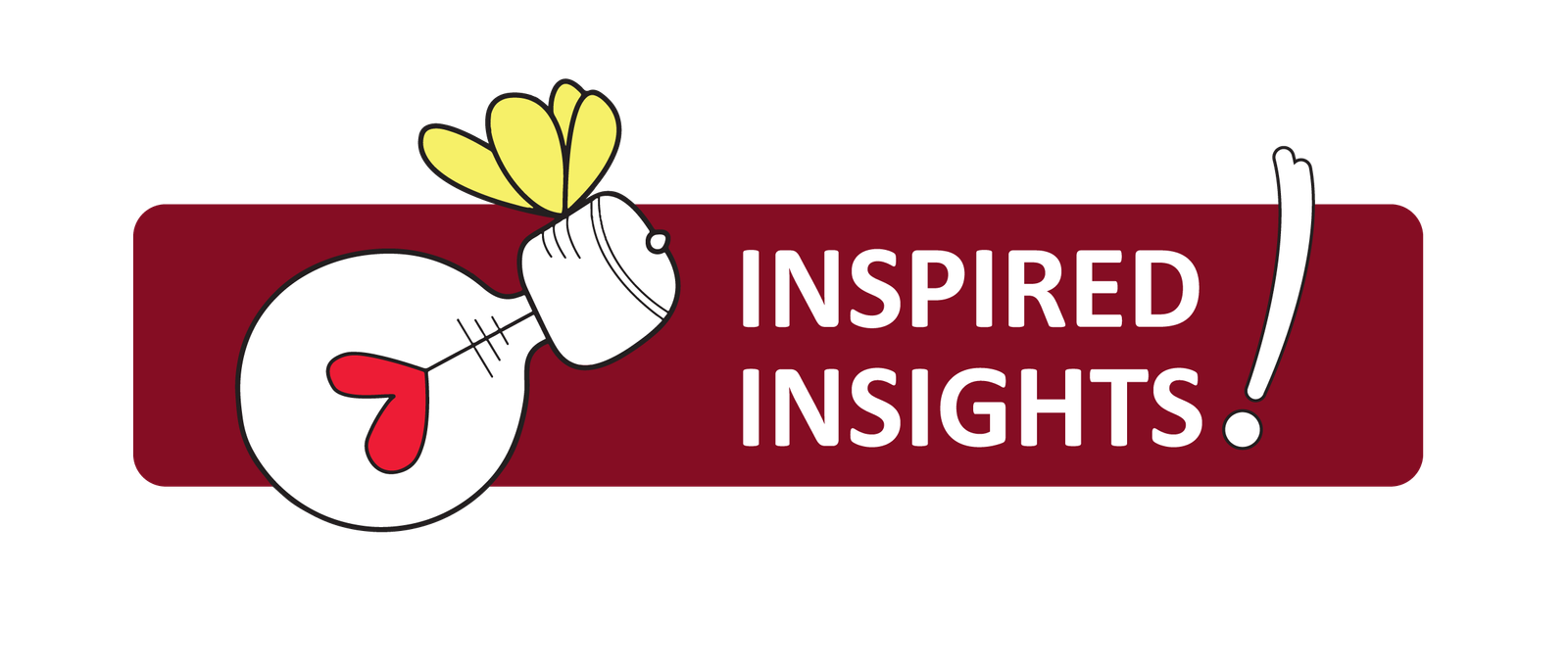
All Episodes
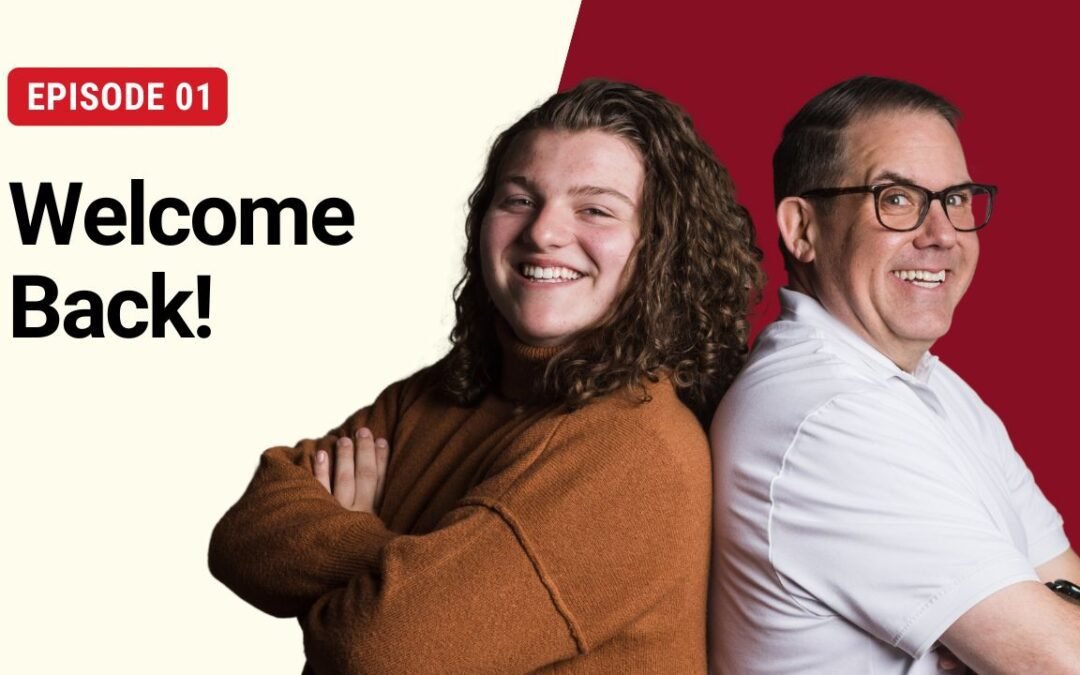
S3E1: Welcome Back
Welcome back to the Inspired Insights Podcast for the very first episode of Season Three! Join hosts Chris and Soren as they dive into a heartfelt conversation about the evolving world around us–and within us.
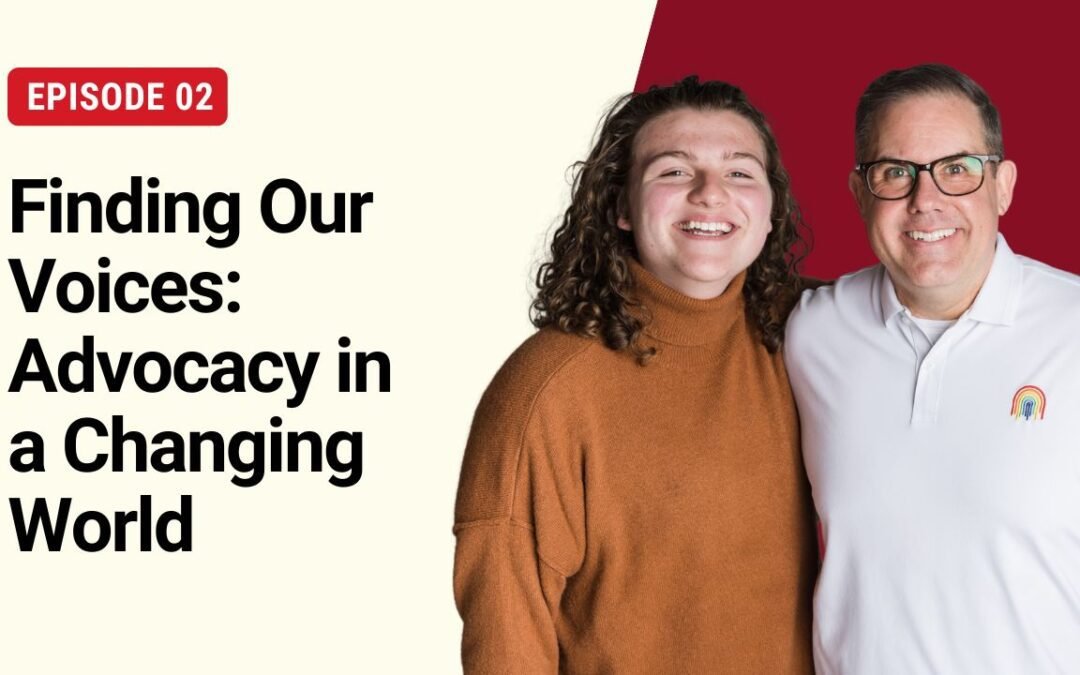
S3E2: Finding Our Voices: Advocacy in a Changing World
Chris and Soren sit down with seasoned lobbyist and tireless human rights advocate, Charlotte Warren, to explore the power—and the personal cost—of advocacy in today’s shifting political landscape.
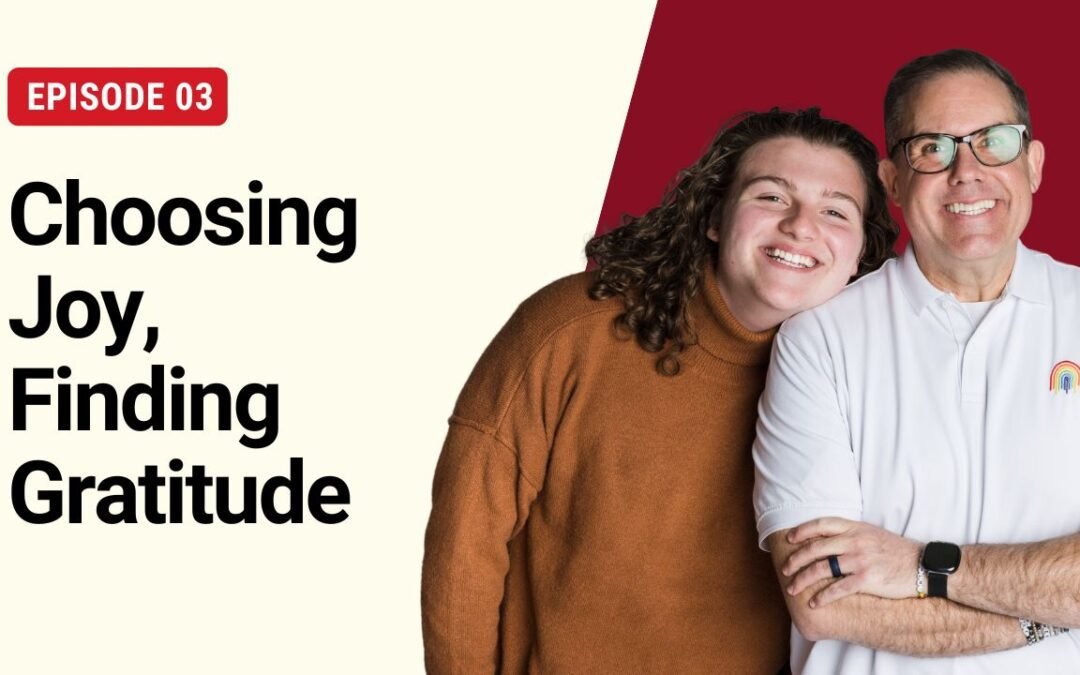
S3E3: Choosing Joy, Finding Gratitude
Chris and Soren unpack how reframing our thoughts can change the way we experience the world—from the inside out.
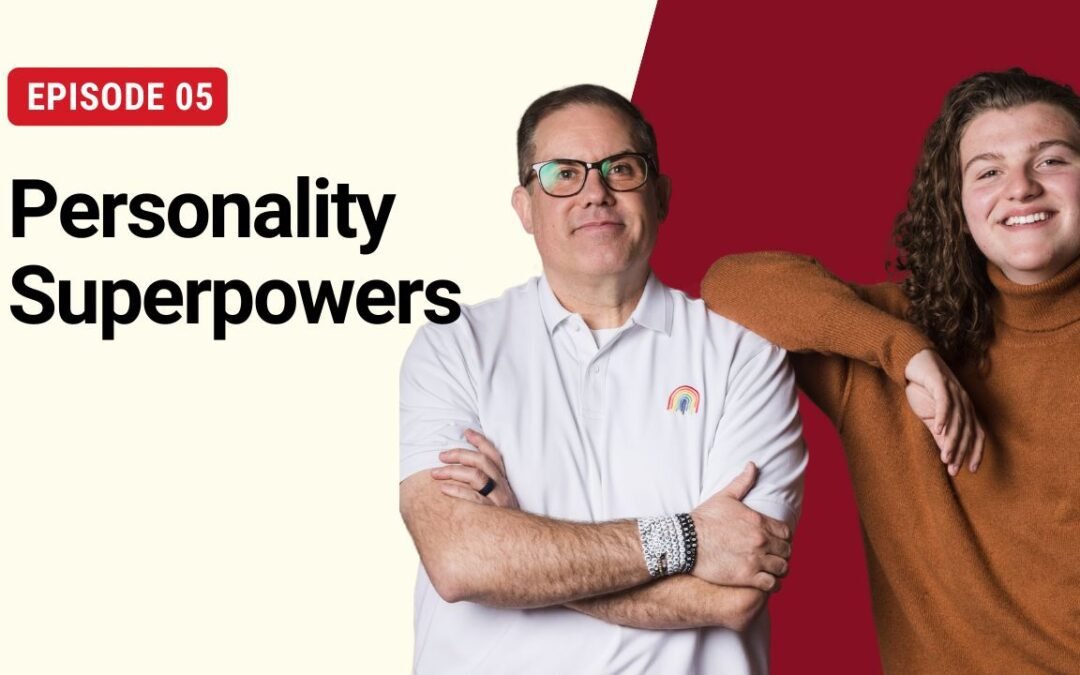
S3E5: Personality Superpowers
In this episode, Soren and Chris explore their Myers-Briggs personality types and how trauma and lived experience have influenced how they show up in the world.

S3E6: The Power of Pride
Together, they explore the deeper meaning behind Pride celebrations—why they matter, how they foster connection and visibility, and what it really takes to bring a community-wide event like this to life.
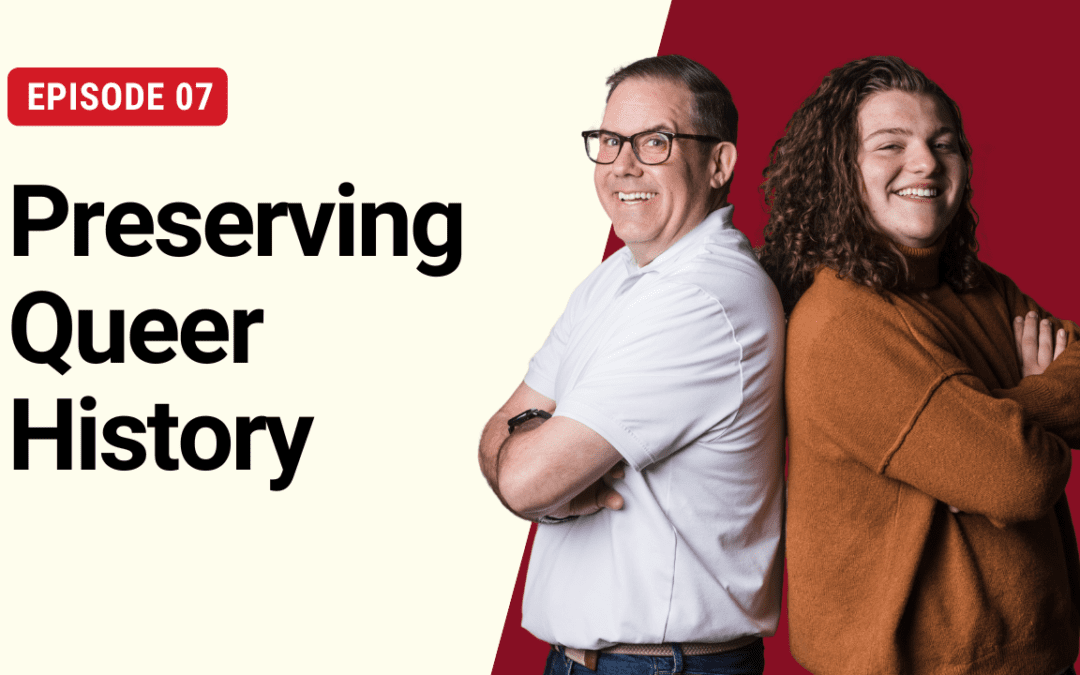
S3E7: Preserving Queer History
Soren and Chris sit down with special guests Sam and Emma to explore the vital importance of preserving queer history through storytelling and community memory.
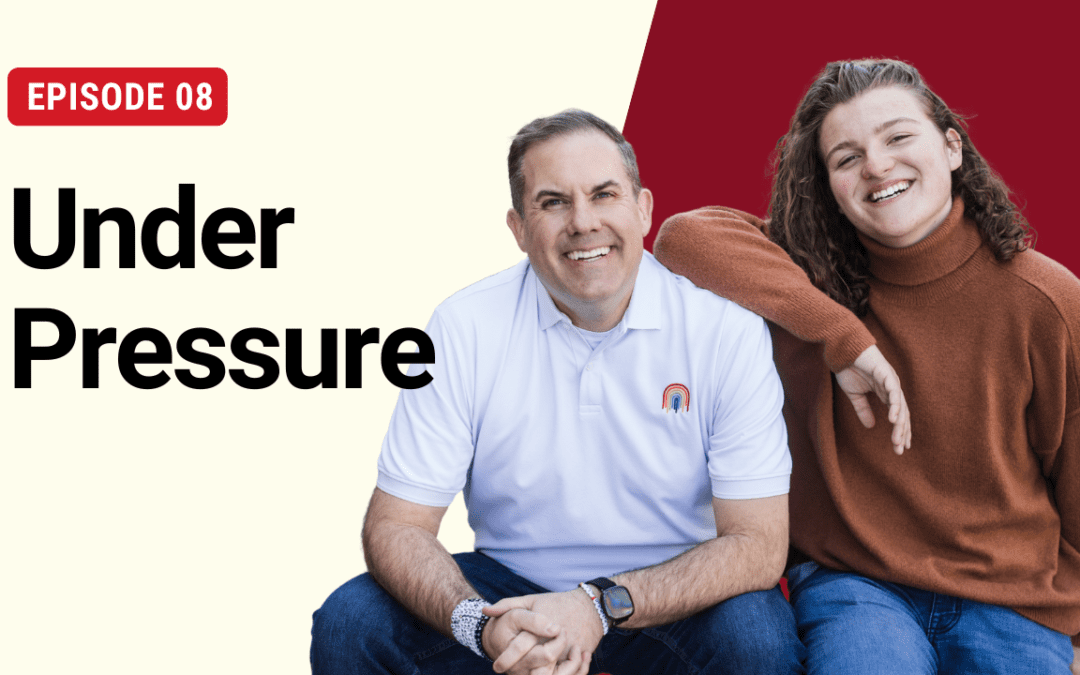
S3E8: Under Pressure
What happens when we let teens speak for themselves? In this candid and eye-opening episode, Soren and Chris hand the mic to two remarkable young adults—Sophie and Bennet
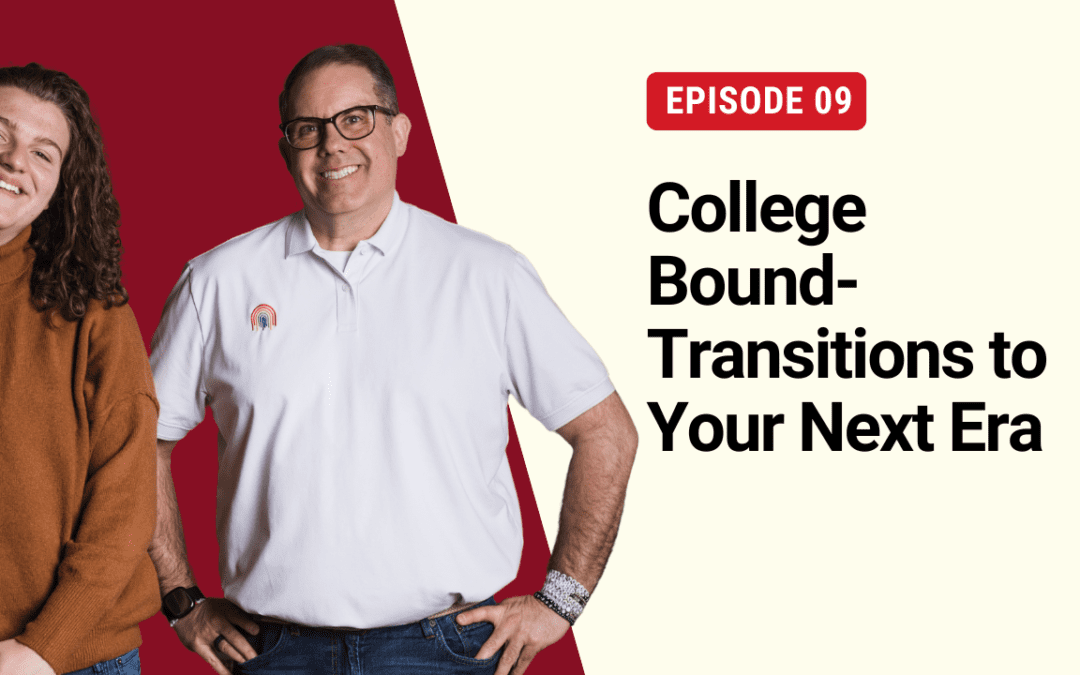
S3E9: College Bound: Transitions to Your Next Era
Soren and Chris sit down with two student life experts, Angela and Andi, to explore the powerful transition from high school to college—and how it reshapes community, mental health, identity, and daily life.
